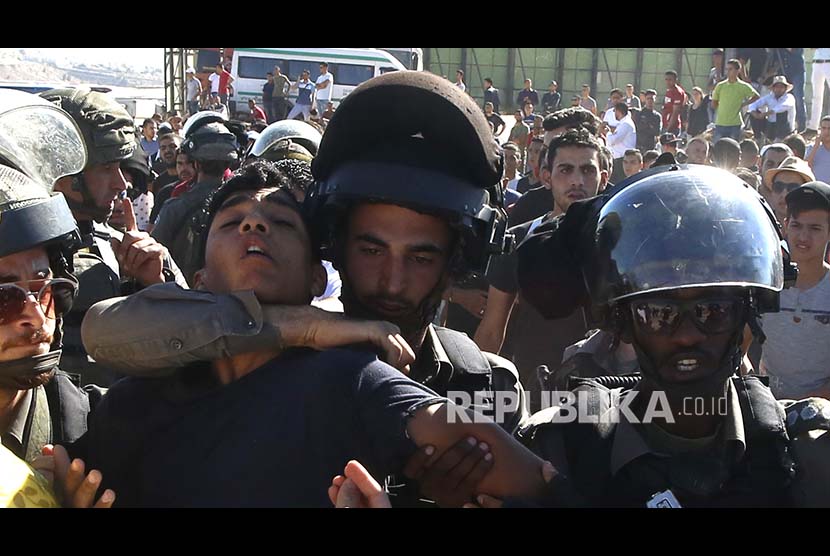REPUBLIKA.CO.ID, JERUSALEM -- Israel bolstered security in the Old City of Jerusalem on Friday and prepared for possible clashes with Muslim worshippers after Prime Minister Benjamin Netanyahu decided metal detectors at a sensitive holy site would not be removed.
There have been daily confrontations between Palestinians hurling rocks and Israeli police using stun grenades since the detectors were placed at the entrance to the shrine, known to Muslims as the Noble Sanctuary and to Jews as Temple Mount, on Sunday, after the killing of two Israeli policemen.
Muslim leaders and Palestinian political factions have urged the faithful to gather for a "day of rage" against the new security policies.
The Israeli police said extra units had been mobilised to bolster security in the Old City, while Muslim access to the shrine for prayers would be limited to women of all ages and men over 50. Roadblocks were in place on approach roads to Jerusalem to stop buses carrying Muslims to the site.
"Police are coordinating to enable Friday prayers to take place and at the same time security measures are taking place," spokesman Micky Rosenfeld said.
The Noble Sanctuary-Temple Mount compound, containing the Dome of the Rock and the Aqsha Mosque, has long been a source of religious friction. Since Israel captured and annexed the Old City, including the compound, in the 1967 Middle East war.
On Thursday, there were calls for Netanyahu to back down and remove the metal detectors so as not to inflame the situation.
Also read: Al Aqsha imam" href="http://en.republika.co.id/berita/en/international/17/07/20/otdwl8414-indonesia-condemns-shooting-of-al-aqsha-imam" target="_blank">Indonesia condemns shooting of Al Aqsha imam
Turkish President Tayyip Erdogan, after discussing the issue with Palestinian President Mahmoud Abbas, called Israeli President Reuven Rivlin to press for their removal.
Nickolay Mladenov, the United Nations' special coordinator for long-stalled Israel-Palestinian peace talks, appealed for calm and the White House urged a resolution. Jordan, which is the ultimate custodian of the holy site, has also been involved in mediation efforts.
A wave of Palestinian street attacks that began in 2015 has slowed but not stopped. At least 255 Palestinians and one Jordanian citizen have been killed since the violence began.
Israel says at least 173 of those killed were carrying out attacks while others died in clashes and protests. Thirty-eight Israelis, two U.S. tourists and a British student have been killed in stabbings, shootings and car-rammings.
Israel annexed East Jerusalem, where the Old City and the holy compound are located, after the 1967 Middle East war and regards all of Jerusalem as its capital, a move that is not recognised internationally.
Palestinians want East Jerusalem as the capital of the state they want to establish in the West Bank and Gaza Strip.
Israel blames the wave of violence on incitement by the Palestinian leadership. The Palestinian Authority, which exercises limited self-rule in the West Bank, says desperation over the occupation is the main driver.


